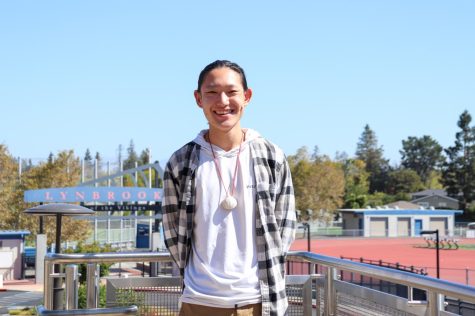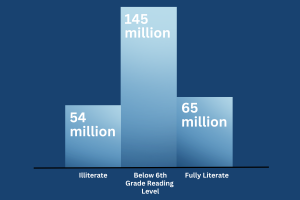Combatting the community college stigma
Graphic illustration by Jason Shan
Community colleges are actually great options for students to consider.
April 14, 2021
Community colleges are often viewed as inferior to four-year institutions. At a school that boasts an impressive number of students attending the nation’s top 20 (T20) undergraduate schools, some Lynbrook students perceive enrolling in less competitive schools as shameful. However, contrary to many students’ beliefs, community colleges offer a rigorous level of education in a non-competitive environment.
When faced with the option of going to community college as a result of receiving more rejection letters than in the past, Lynbrook students may run into the negative reputation that many of these local colleges have developed. Students joke that it would be a shame if they needed to attend De Anza College because they were not accepted into another more prestigious school. Even less selective UCs, which are very prestigious in their own right, are seen as preferred safety schools over community colleges. This belief, combined with a more relaxed admissions process, a perception as the “easy out” and the pressures that follow other students announcing their impressive acceptances, creates a pervasive stigma at Lynbrook.
“One of the myths about community college is that students who are not very academic go to community colleges,” said Barbara Takahashi, Lynbrook’s College and Career adviser. “That’s very inaccurate. Attending a community college doesn’t mean a student is less smart or less capable. It means they’re choosing a route that best fits their needs.”
Community colleges can be pathways to successful careers. Famous community college alumni include Steve Jobs and Steve Wozniak from De Anza College and Tom Hanks from Chabot Community College. A 2013 poll also found that when employers ranked the importance of an applicant’s university, only 9% responded that the university was “very important” while 40% responded that it was “not very important.”
Especially in the local area, community colleges can be impressive. De Anza college ranks as the ninth best community college in California and boasts one of the best two-year college graduation rates. Community colleges also have their own benefits over more other notable universities including a much lower tuition and being able to accommodate students who work.
“I think one way to help alleviate the stigma is to educate students about how much of a tool community colleges can be for getting into your desired institution,” said Lance Shoemaker, a Business and Real Estate professor at West Valley College. “It’s much easier to get into your dream school transferring from community college than it is to get in as a freshman or transferring from another four-year institution.”
Many community colleges offer smaller class sizes compared to their competitive counterparts, allowing for more intimate student-teacher relationships. Often, professors at four-year institutions divide their time between teaching and conducting research, whereas community colleges focus more on just the teaching aspect. In fact, according to Rate My Professors, the overall quality ratings of De Anza and West Valley colleges are the exact same as the ratings of UC San Diego and UC Merced, with Foothill College besting that of even UC Berkeley. While the legitimacy of the numbers on these ratings sites are somewhat dubious, the teaching pool among any college is still very capable and all schools have a mix of subjectively “good” and “bad” professors.
Community colleges also present opportunities that four-year universities do not have in the form of certificates. These certificates are not full degrees, but are niche, topic-specific programs that demonstrate competency. De Anza College’s certificate program provides unique courses such as automotive work, child development, health technologies, phlebotomy and real estate. Certificate programs are a great way for students to explore career options and gain qualifications without committing a large sum of money.
Two-year colleges can also serve as the starting block before transferring to other universities. In the 2020-2021 academic year, De Anza, Foothill and West Valley colleges respectively had a 79%, 77% and 76% transfer admission rate into the UC system. The UC system has an established Transfer Admission Guarantee (TAG) where students who meet certain requirements are guaranteed admission to one of the UC campuses. UCLA, while excluded from TAG, has its own Transfer Alliance Program (TAP) for honor students. Credits are transferable, so by the end of a transfer student’s college years, they may earn a bachelor’s degree but gain the experience of two different college environments that most four year students do not experience. The Associate’s Degree for Transfer (ADT) system also maintains a guaranteed campus for certain transferring students.
College underclassmen are required to complete general education classes. One potential pathway for students is to complete these classes during their community college years with a smaller environment and class size, then have a more flexible schedule after transferring. According to the UC database, the current freshman four-year graduation rate is 71.3%, while the transfer four-year graduation rate is 88.5%.
The transfer process will be even easier if California Governor Newsom’s dual admission proposal is passed. This measure would begin in 2023 and allow community college freshmen to have a guaranteed spot in the UC or CSU campus of their choice after completing their ADT. The measure hopes to give students more access to resources from these universities starting from their freshman year. The proposal is still in the works, but it remains a promising step toward opening up transfer pathways for community college students.
Navigating the straits of Lynbrook expectations is not an easy task. While many students may want to attend prestigious universities to obtain the highest standards of education, students should not overlook community colleges in the college search process.
“Your whole life will be surrounded by other people who you might compare yourself to,” said Paul Li, a Lynbrook alumnus and UCLA transfer student. “But remember that college is just another stage of life. Why hold yourself down to a few options when there are so many other possibilities to go around?”




























































